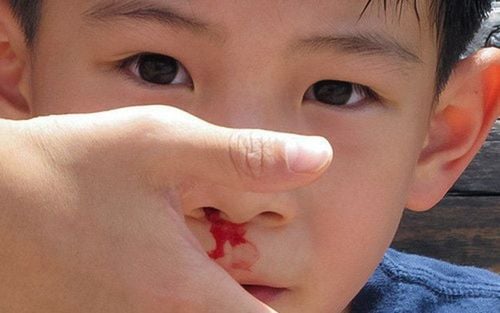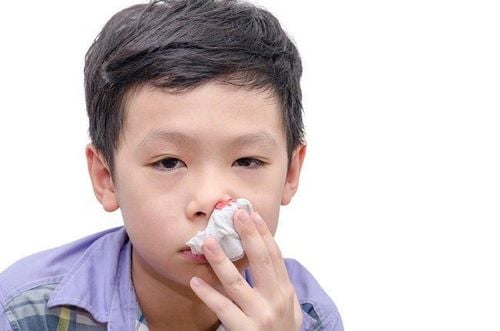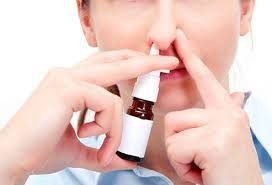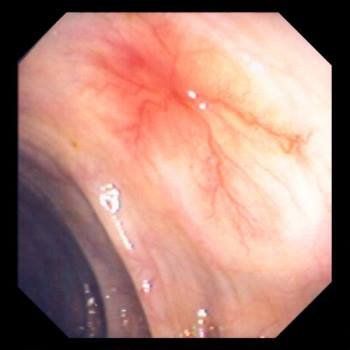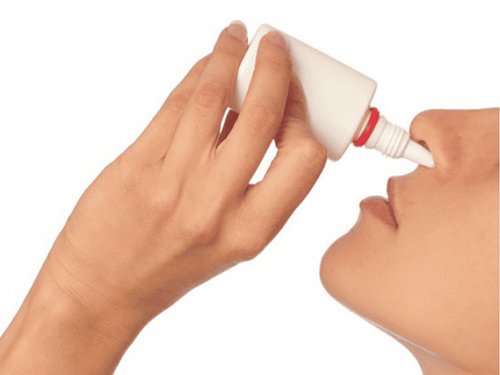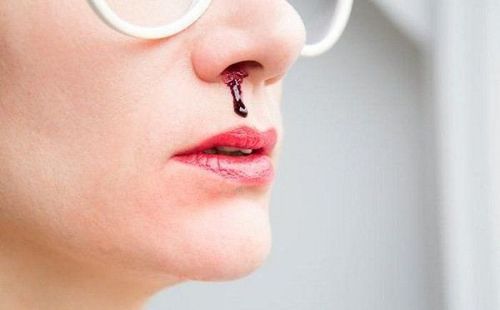This is an automatically translated article.
The article is professionally consulted by Master, Doctor Vu Huu Thang - Emergency Resuscitation Doctor - Emergency Resuscitation Department - Vinmec Ha Long International General Hospital. The doctor has nearly 10 years of experience in Emergency Resuscitation.Nosebleeds are common, annoying, and uncomfortable conditions, most of which are not medical problems. Here are first aid instructions for nosebleeds.
1. Nosebleed First Aid
Sitting position, head slightly tilted forward. In a sitting position, blood pressure in the veins in the nose area decreases, preventing further blood from flowing. Sit forward to prevent blood from flowing down the throat causing vomiting. Pinch the nose. Use your thumb and index finger to squeeze the sides of your nose for 10 to 15 minutes, breathe through your mouth. This usually stops the bleeding. If bleeding persists after 10-15 minutes, repeat the above steps for the next 10-15 minutes. If you still can't stop the bleeding, you need to go to a medical facility for treatment.To prevent re-bleeding: do not pick your nose and bend over for several hours after a nosebleed. During this time, it is important to keep the head higher than the chest. Vaseline can be applied with a cotton swab or finger to the anterior part of the nasal septum.
If bleeding occurs again: blow your nose vigorously to remove blood clots that form in the nose. Then use a nasal spray containing oxymetazoline (Afrin), spray in both nostrils. Repeat the hemostasis steps outlined above and contact your doctor.
2. When to see a doctor?
Nosebleeds lasting more than 30 minutes Syncope or dizziness Nosebleeds after an accident, fall or head injury, including a punch wound to the face3. When is treatment needed?
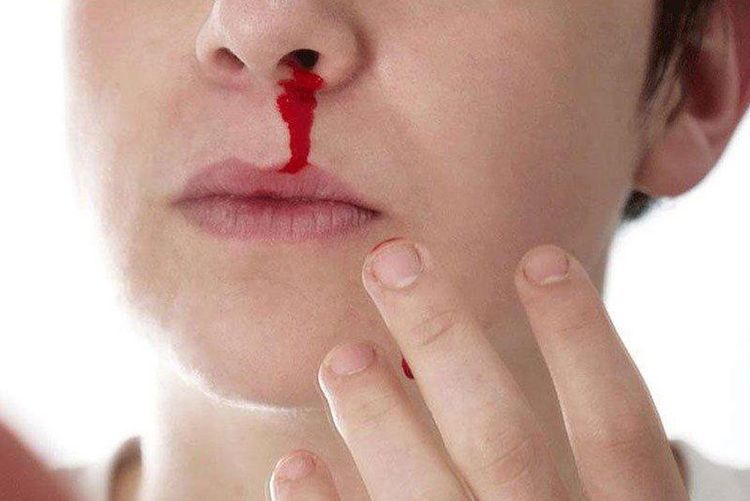
People who have frequent nosebleeds but are taking anticoagulants, such as aspirin or warfarin (Coumadin, Jantoven), may be advised to adjust the dose. Breathing oxygen through a nasal cannula can also increase the risk of nosebleeds. Increase the humidity in the room to reduce nosebleeds.
The above are the ways of timely first aid when nosebleeds, in case nosebleeds are frequent and heavy, making it difficult to stop bleeding, at this time you should go to medical facilities to be checked to prevent bleeding. rule out the cause of nosebleeds coming from pathological factors.
Currently, Vinmec International General Hospital is implementing a general health checkup package for all subjects and ages with comprehensive examination services. Vinmec is also one of the very few hospitals with a full range of leading specialists to help advise and quickly and promptly handle diseases detected during medical examination.
Please dial HOTLINE for more information or register for an appointment HERE. Download MyVinmec app to make appointments faster and to manage your bookings easily.





